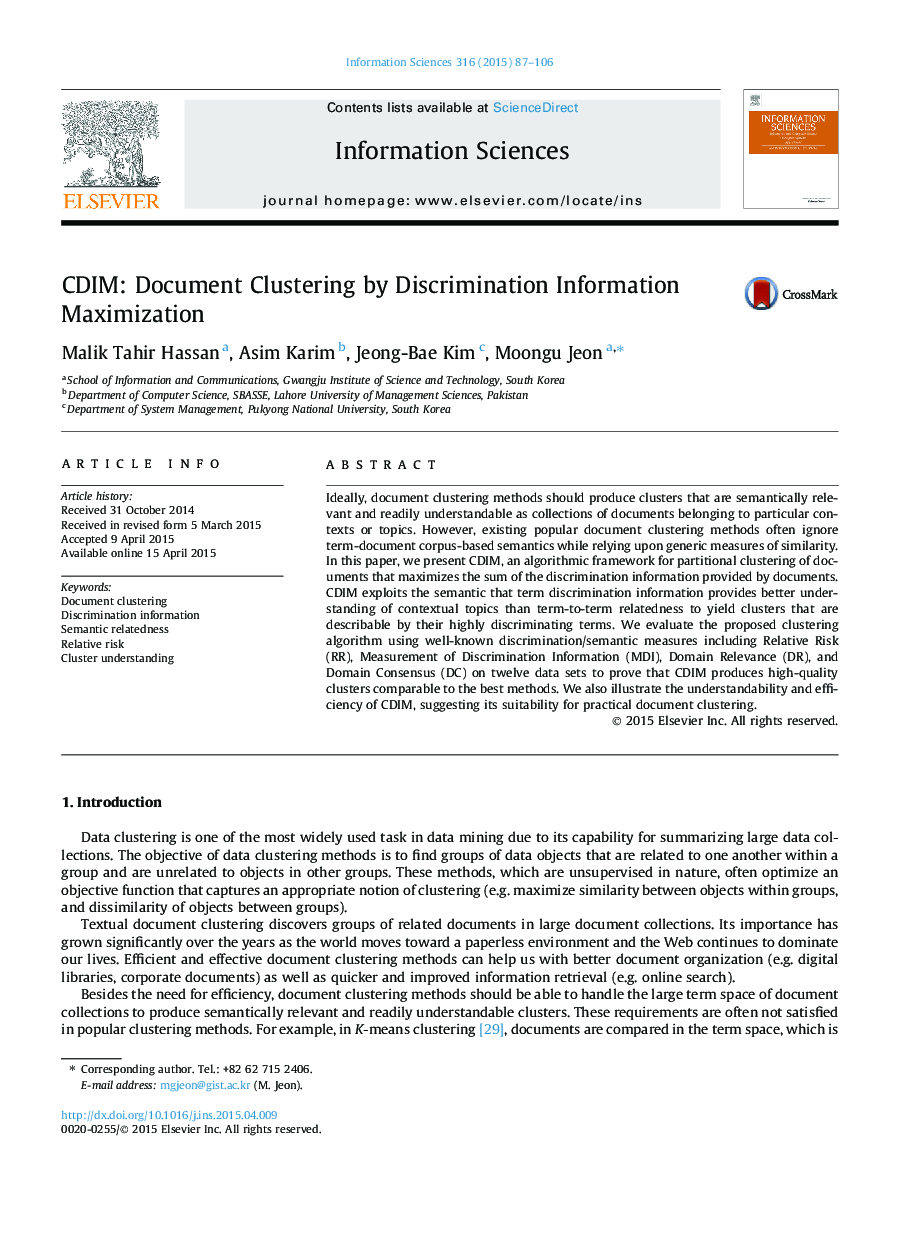| Article ID | Journal | Published Year | Pages | File Type |
|---|---|---|---|---|
| 391521 | Information Sciences | 2015 | 20 Pages |
Ideally, document clustering methods should produce clusters that are semantically relevant and readily understandable as collections of documents belonging to particular contexts or topics. However, existing popular document clustering methods often ignore term-document corpus-based semantics while relying upon generic measures of similarity. In this paper, we present CDIM, an algorithmic framework for partitional clustering of documents that maximizes the sum of the discrimination information provided by documents. CDIM exploits the semantic that term discrimination information provides better understanding of contextual topics than term-to-term relatedness to yield clusters that are describable by their highly discriminating terms. We evaluate the proposed clustering algorithm using well-known discrimination/semantic measures including Relative Risk (RR), Measurement of Discrimination Information (MDI), Domain Relevance (DR), and Domain Consensus (DC) on twelve data sets to prove that CDIM produces high-quality clusters comparable to the best methods. We also illustrate the understandability and efficiency of CDIM, suggesting its suitability for practical document clustering.
